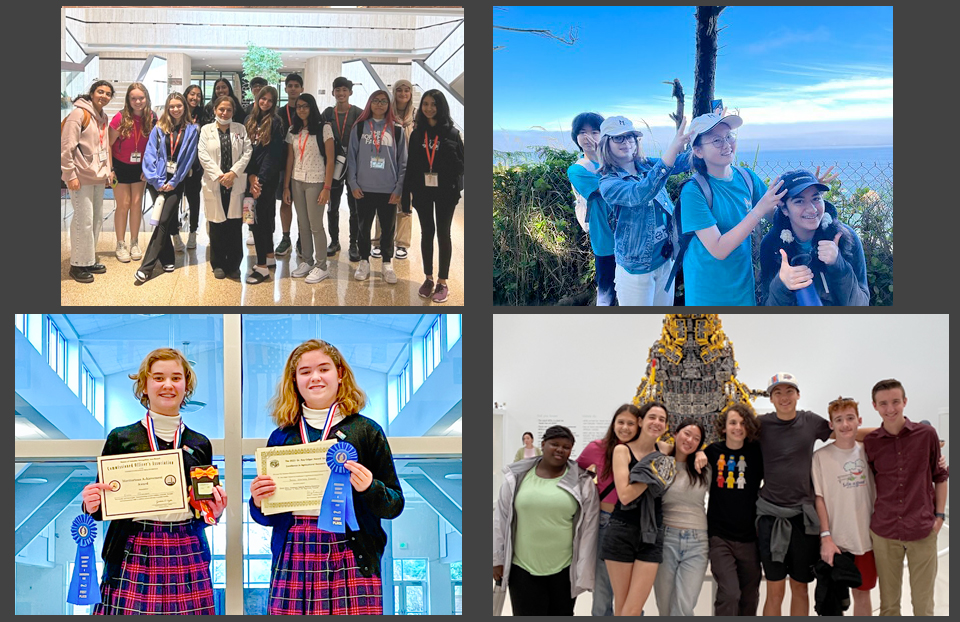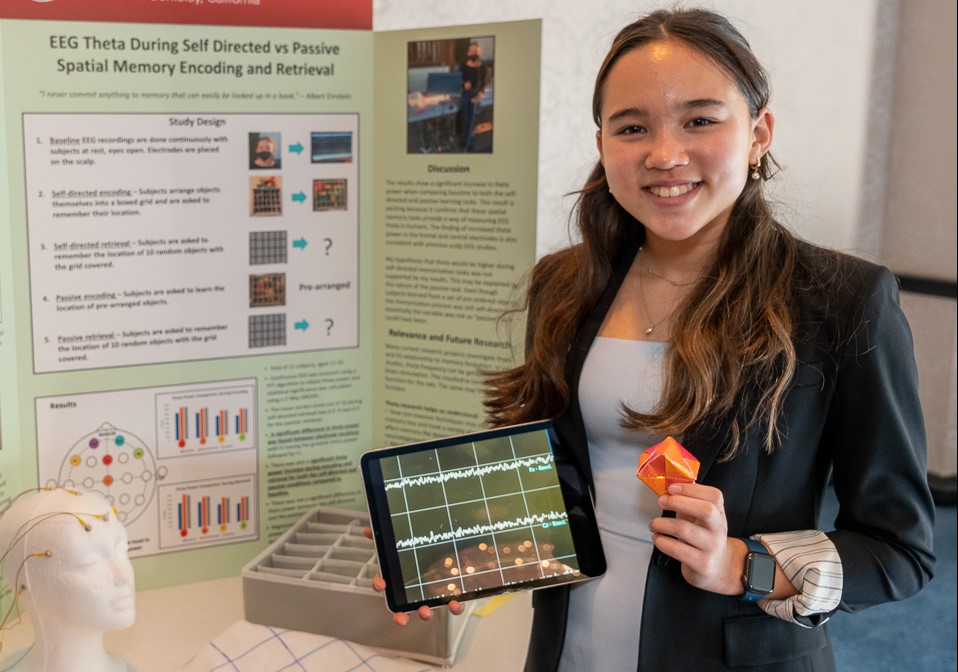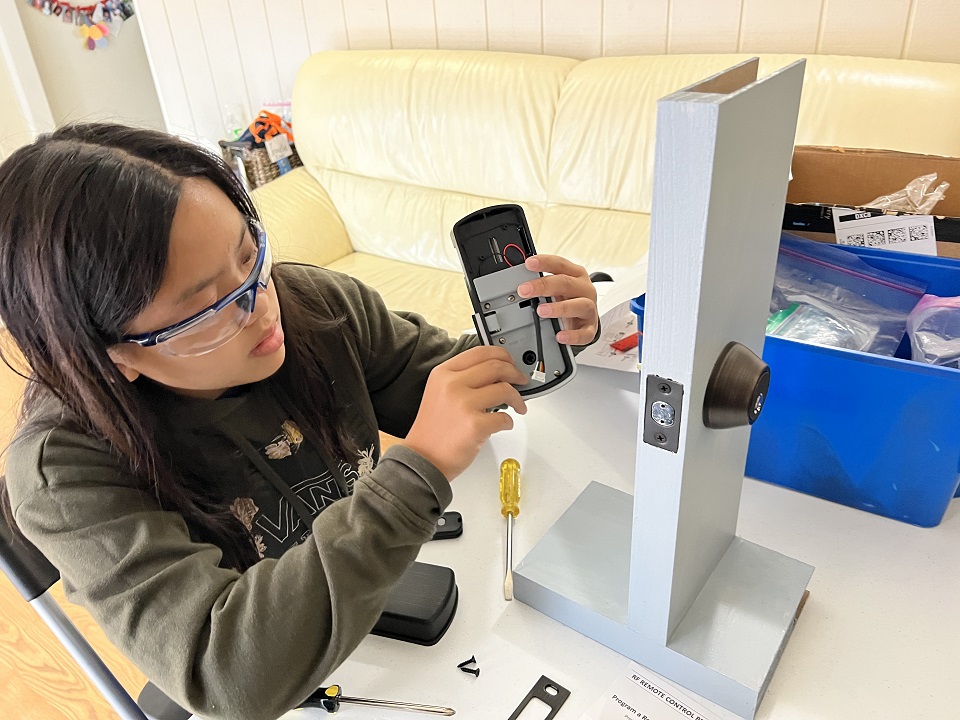Throwback to summer with these top middle school scientists
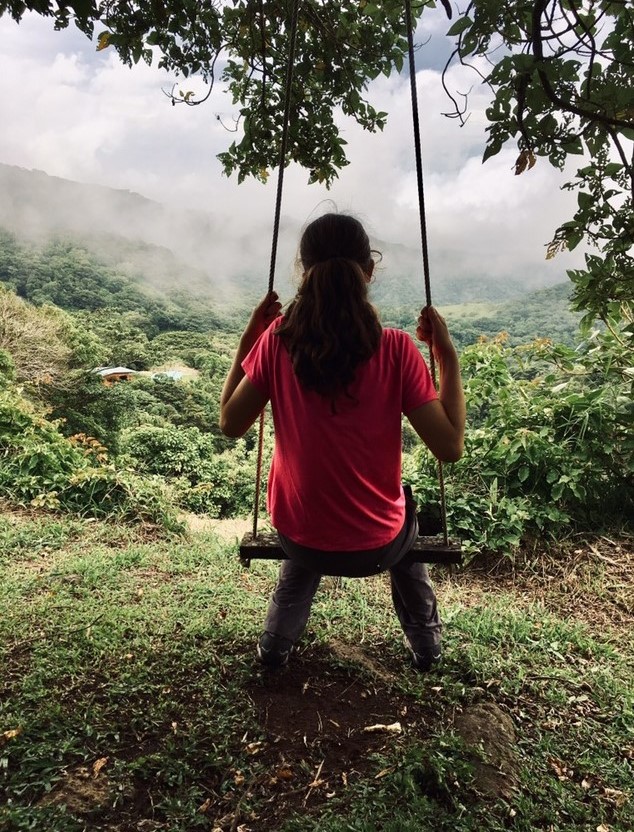
Curious about how the nation’s top middle school innovators spent the summer? Look no further! As part of the Broadcom MASTERS, 1st and 2nd place awards are given to finalists in the categories of Science, Technology, Engineering and Math. First place STEM award winners receive a $3,500 stipend for a summer camp of the winner’s choice and an iPad. Second place STEM award winners receive a $2,500 stipend for a summer camp of the winner’s choice and an iPad. Now that the 2018 STEM award winners are back to school, we had a chance to catch up with a few of them about their summer experiences!
Asmi Kumar (BCM 2018)
Milton, Georgia; Second Place Math Award
Asmi spent her summer in the AI4ALL program at Stanford University in California. “It was an incredible experience! Living at the Slav Dom House at Stanford taught me about what life away from home would be like. I immediately liked it. The Stanford campus was insanely beautiful!” While there, Asmi worked on a group project on the topic of computer vision. “My group and I mapped and predicted global poverty using satellite images,” she said. “We stayed up late and collaborated all day for several days. It was hard work, but a lot of fun too!” After her summer at Stanford, Asmi highly recommends this camp experience to others. “These were hands-down the best three weeks of my life. Because it was an all-girls program, I felt I connected and bonded with the other campers; we got to know one another extremely well over the course of the camp, and I still keep in constant touch with so many of them. I truly formed genuine friendships there,” she reflected.
Amara Orth (BCM 2018, ISEF 2019)
Council Bluffs, Iowa; First Place Science Award
Amara went to a camp called Conserving Wild Bees and Other Pollinators of Costa Rica in Monteverde, Costa Rica. “I chose to attend this camp because I live on a honeybee farm in Glenwood, Iowa. I wanted to expand my knowledge of pollinators in different countries,” she explained. As part of Amara’s camp itinerary, she visited a local coffee farm that left an impression on her. “They grew and harvested their own coffee beans. In one of the processes, they de-shell the beans.” Amara shared that the leftover shells and grounds are transformed into paper, which not only creates jobs for local women, but also provides recycled paper packaging for coffee farmers. “Hearing all of this taught me about the lifestyle and the overall sustainability efforts in Costa Rica and I found it really inspirational.” For anyone interested in gaining field experience and learning about the amazing pollinators in Costa Rica, Amara says this is the camp to attend.
Espen Slettnes (BCM 2018)
Castro Valley, California; First Place Mathematics Award
Espen used his prize to take an honors math course at UC Berkeley: Introduction to Complex Analysis. “Complex analysis is a beautiful branch of mathematics. It is a potent tool with an unexpectedly large number of applications, from string theory to number theory to electrical engineering. A conjecture from this field, the Riemann hypothesis, is one of the Clay Mathematics Institute Millennium Prize problems. The Clay Mathematics Institute will award a million dollars to a person who can solve this 160-year-old math problem,” Espen explained. “I thoroughly enjoyed every minute of the class, especially the content, problem sets and the professor’s teaching style.” Currently, Espen is digging into his passion for mathematics in a topology class.
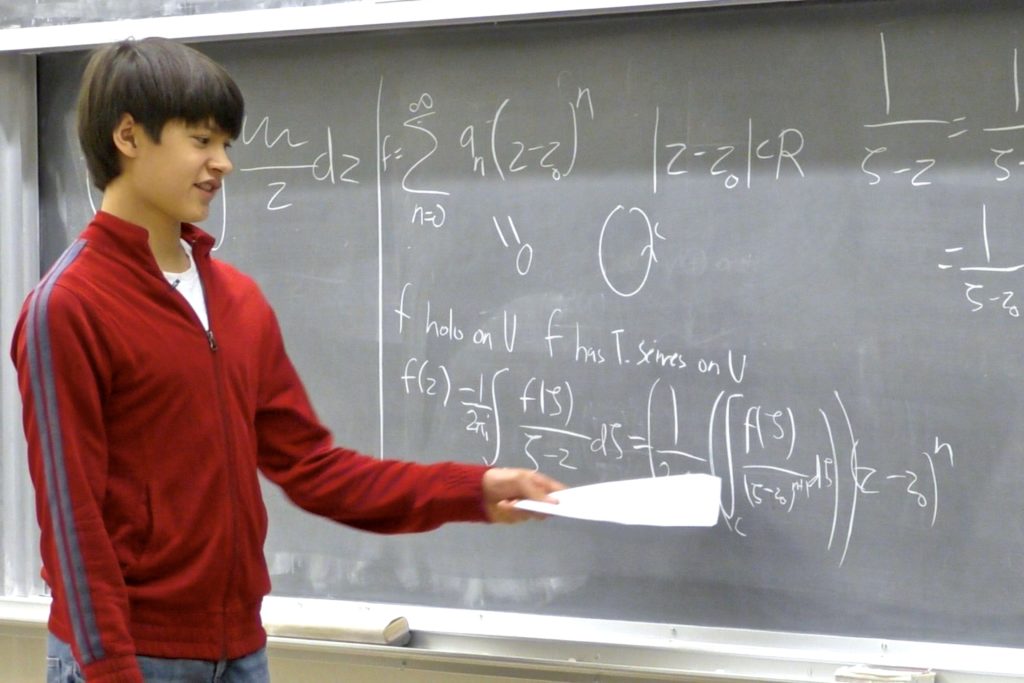
Gary Zhan (BCM 2018, ISEF 2019)
Logan, Utah; Second Place Technology Award
Gary attended Camp MD at the University of Utah School of Medicine in Salt Lake City. “We learned about organ anatomy, including the heart, brain and muscles and performed dissections on each organ as well. I chose this camp because I have always been interested in biology and anatomy of organisms, and this gave me a chance to delve into how this information is being applied in society today. The camp gave me a good look at the day-to-day life of someone in the medical field and allowed me to engage with medical students studying fields from dentistry to neuroscience. It’s ironic that the more we learn about the human body, the more we realize how little we know,” Gary noted. Although medicine had previously not been a career aspiration for Gary, it is now something he may pursue in his studies as a result of his camp experience.
